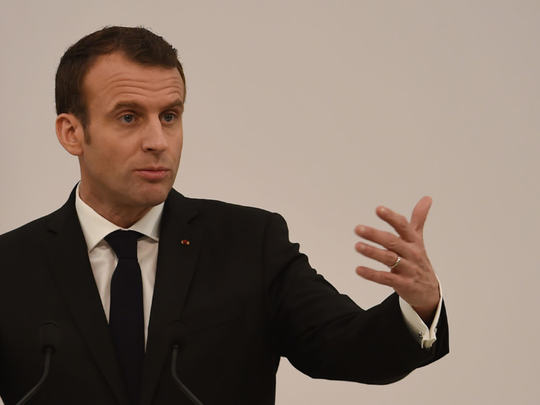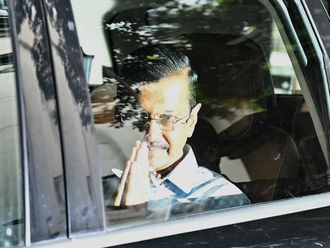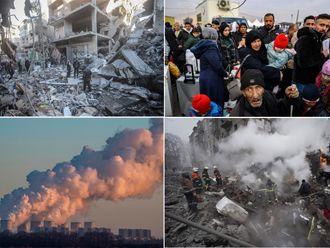
Recently the French Minister of the Interior, Gerard Collomb, presented the details of a heavily-trailed new law on immigration to President Emmanuel Macron’s cabinet. Given the long build-up to this announcement — with the government adopting a resolutely “firm” posture on immigration — the details outlined will come as little surprise.
The new law is framed in terms that entrench the division between “asylum seekers” and “economic migrants”. This division, so flippantly cited by the political class and yet so difficult to distinguish in law, will be reinforced by a tightening of the right to asylum. And yet ultimately, the changes announced will be worse for all migrants.
The law is also intended to bring France in line with its European partners — greater European integration being one of Macron’s leitmotifs. In his announcement to the press, Gerard Collomb made no attempt to dress this up as anything other than what it is: A race to the bottom. “It is totally necessary — regarding countries like Germany, France, Italy, the Netherlands, or Sweden — that we have the same types of procedures; because if you don’t have the same types of procedures, clearly, one looks at where it is easiest to gain asylum, and then everyone goes to that country.” One would be hard pressed to paint a more discouraging portrait of the politics of the European Union.
The key measures outlined in the new law are as follows. First, the government is proposing to speed up asylum procedures. The amount of time people have to apply for asylum will be reduced from 120 days to 90. Those whose cases are rejected will see the time they have to appeal the decision cut in half, from 30 days to 15. This has a particularly Macron-esque touch. It is intended to show that the government is accelerating the process for “deserving” asylum seekers while cracking down on the rest — in other words, it hopes to add a gloss of just efficiency to an otherwise punitive set of measures. Second, the maximum length of time spent in a detention centre will be tripled, from 45 to 90 days. As pointed out by France’s foremost migrant charity, La Cimade, the previous increase from 30 to 45 days in 2011 saw a decrease in the number deportations. Furthermore, France deports substantially more people than the UK or Germany, despite the fact that people can be detained for as long as 18 months in those two countries. Tripling the length of detention is purely performative, to demonstrate the state’s stringency, and the only real effect will be to increase suffering.
Finally, the new law includes a range of measures to dissuade migrants from entering France and make it easier for them to be deported when they do so. Border patrols will be given new powers to carry out checks in migrant and homeless shelters. Police will be given longer to summarily deport people before being obliged to bring them before a judge. The length of time that suspected illegal immigrants can be detained in police stations will be increased from 16 hours to 24 hours. And prison sentences will be introduced for certain cases — one year for entering the country without using a recognised border crossing and five years for using fake identification papers.
These measures have been criticised by policy experts as well as those working on the ground to help new arrivals. Migrants, supported by students, have occupied university buildings in Nantes, Grenoble, Lyon and Paris in defiance of the government’s hard line. Lawyers and administrative staff of the national asylum court are on strike for the eighth day running. In Macron’s own party, En Marche, has several deputies expressed concerns in the lead-up to the announcements. In the press, Macron is being presented as tougher on immigration than Sarkozy — which on paper, if not in rhetoric, is incontestable.
In opinion polls French voters want more border controls. But such explanations miss the bigger picture. Up until now, the political direction of Macron’s presidency has paid little attention to polling or public opinion: just look at the way he introduced reforms to French labour law via a series of ordinances.
This policy is neither an electoral calculation nor a pragmatic necessity — it must stem from Macron’s own convictions. Liberalism has a long history of drawing sharp lines between those who get to enjoy the fruits of freedom and equality and those who do not.
This can be observed in France’s history. At certain rare moments, the idea of France — inherited from the French Revolution of 1789 — as self-declared universal beacon of human rights, entailed stretching the concept of the nation to breaking point. In his magisterial account of the Haitian slave revolution of 1791, The Black Jacobins, CLR James describes how liberty and equality, the watchwords of the French Revolution, crossed borders indiscriminately, spreading like wildfire through Haiti and beyond. It was the forefathers of modern-day liberalism that consistently sought to rein in this revolutionary process by attempting to exclude certain categories of people — “mulattoes”, slaves — from the freshly declared Rights of Man.
Macron’s new immigration law places him in this tradition of exclusionary French liberalism. It represents a shrinking from the universal role that France has so long imagined for itself — and that Macron seemed so keen to rekindle (with a sprinkling of Silicon Valley jargon for good measure). His recent assertion — “France is back” — rings hollow. One cannot lead the world into a new liberal era while pushing back migrants and refugees. In doing so, Macron has shown how liberalism, in drawing a sharp line at the border, falls short on the most basic questions of solidarity.
— Guardian News & Media Ltd
Gabriel Bristow is an activist and writer, currently based in Paris.



_resources1_16a45059ca3_small.jpg)





